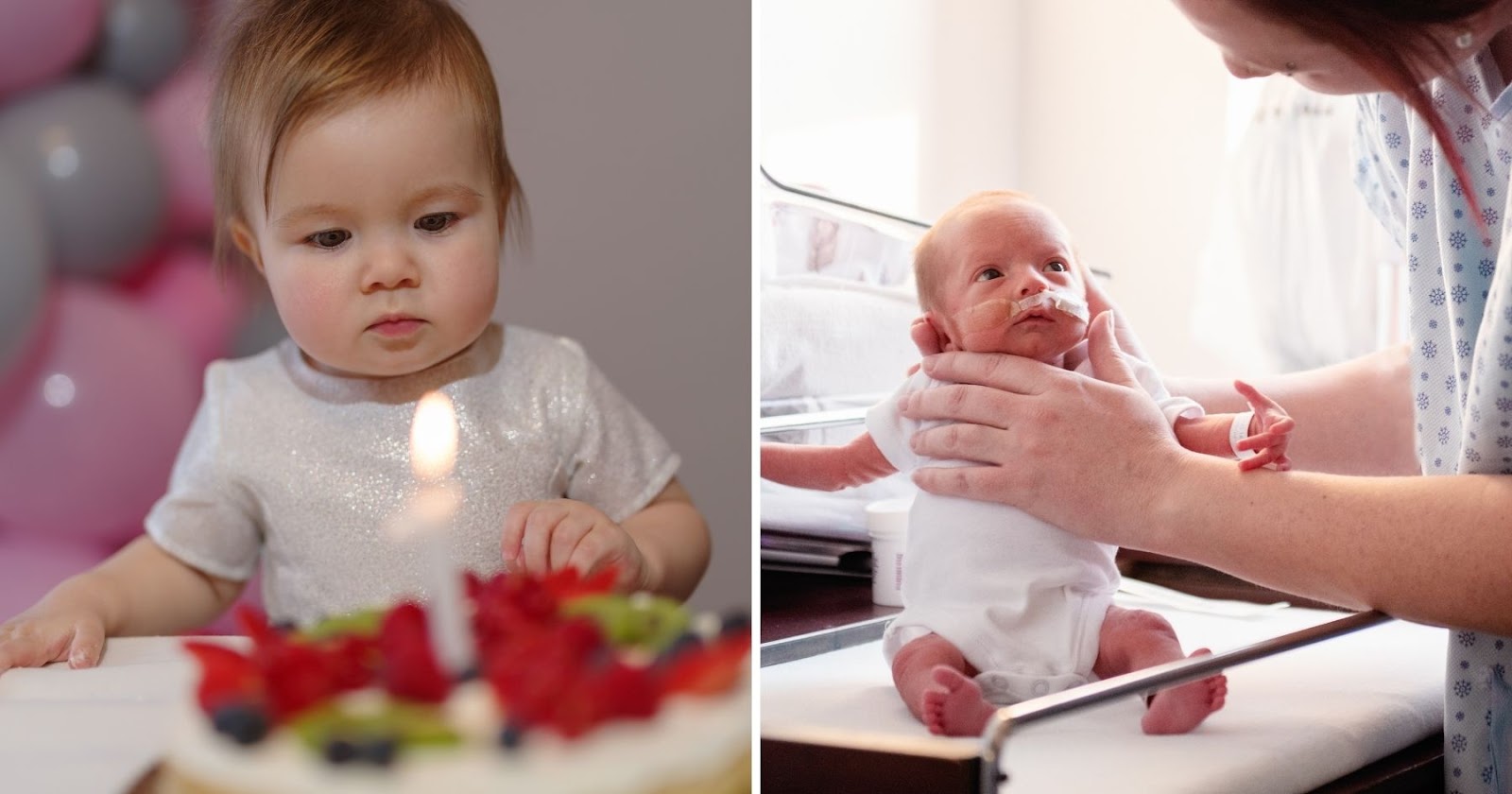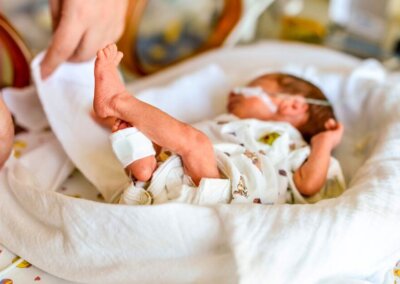The Royal Preston Hospital in Lancashire have issued happy birthday wishes to its youngest ever premature baby to be discharged.
Stella Haigh was born 18 weeks early at just 22 weeks and 3 days, weighing just 480g.
After being born, Stella spent five months on the Trust’s Neonatal Intensive Care Unit, where she received 24/7 support from staff as well as her parents, Jade and Stuart Haigh.
Six months before Stella’s birth, guidelines for the UK’s neonatal units were changed, after a revised framework for managing the tiniest preterm babies – those born below 24 weeks gestation – was introduced.
These new plans were quickly put into effect in June 2020, when Stella’s mum, Jade, 33, a Registered Nurse at Lancashire Teaching Hospitals, gave birth.
She said: “After going to my (20-week) scan, we thought everything was fine but a week later I started leaking water. We thought I was going to deliver her that week but was told there was nothing the nurses could do to help her survive because of the complications involved”.
“When they told me they would be able to offer treatments if she was born at 22 weeks, we knew that is what we wanted. I am an optimistic person and always stay positive and try and see the best in all situations and had faith that she would make it”.
“It gave me hope seeing how experienced and knowledgeable the neonatal staff were. They were honest with me about the chances of survival being minimal and it all depending on how she responds to the treatment”.
New mum Jade was sadly not able to hold Stella until a week after she was born when she was moved to a new incubator as her breathing and brain function continued to be monitored.
Jade explained: “When she got to come home it was daunting for us but amazing at the same time. With it being winter, we were extra cautious about keeping her safe from flu and other viruses because she was still relying on oxygen”.
“It had been so hard to not have much interaction with her, so to be able to finally bring her home was a truly amazing experience. We had to be so careful but it was such a great feeling to finally let our families meet her and be able to spend time with her and watch her grow and develop into the person that she is”.
“We are still getting a lot of help from neonatal nurses who visit as well as physiotherapists and dieticians to make sure she is developing properly”.
“It just shows how medically advanced we are that she is here with us now and the work of the neonatal staff has been absolutely amazing”.
Neonatal Consultant Dr Richa Gupta, who cared for Stella and her family, said: “Stella is a real little star. She was fragile, delicate, and vulnerable. We had to adapt our approach to handling her less often, more carefully, and adjusting everything we did to support her, whilst her own body systems gradually grew stronger and learned to function”.
“It was not an entirely smooth journey; there were many anxious days for the parents, but also lots of joyful milestones to be enjoyed. Mum Jade was at Stella’s side every single day, caring for her alongside the clinical team. That integral care was essential, especially through lockdown”.
She explained, “We had to be extra gentle, especially with her skin. She was our first baby to have silk sheets”.
“All of the NICU team feel privileged to be part of Stella’s incredible start to life, and we wish her a wonderful and happy first birthday”.
Survival rates for babies born before the abortion limit are increasing
15 million babies are born early each year, accounting for 1 in 10 births worldwide.
Babies are continuing to be born before or shortly after the abortion limit in Great Britain of 24 weeks gestation and going on to live and even thrive at greater rates than before. Studies suggest that the majority of premature babies grow up to be healthy adults without any major health problems.
A study, published in the Journal of the American Medical Association in October 2019, followed 2.56 million babies born in Sweden between 1973 and 1997, around six percent of whom were born prematurely.
Researchers compared the health data of premature babies to those that had been born at full term. They found that 55% of premature babies had no serious chronic, physical, or mental health issues by early adulthood. This is compared to 63% for babies born at full term.
Additionally, with each passing decade, the odds of survival for a premature baby to adulthood have improved from about 91% of babies born in the 1970s to about 96% of those born in the 1990s.
A spokesperson for Right To Life UK, Catherine Robinson, said: “The number of babies surviving after being born in the weeks surrounding the legal abortion limit in the UK is increasing all the time”.
“This story is yet another that highlights a real contradiction in British law. In one room of a hospital, doctors could be working to save a baby born alive before 24 weeks whilst in another room, a doctor could perform an abortion that would end the life of a baby at the same age. Surely this contradiction needs to end?”
“Independent polling from Savanta ComRes shows that 70% of women in the UK want to see the time limit for abortion reduced to 20 weeks or below. Our current abortion time limit is way out of line with the rest of Europe where the most common abortion time limit is 12 weeks”.
“Babies such as Stella are living proof of this unjust law, which would allow babies at a very similar gestation to be aborted if they are inside the womb but provided with proper medical care if outside the womb”.
“This story adds to the need for Parliament to urgently review our current abortion time limit. We support any change in law that would help lower abortion numbers and save the lives of babies in the womb”.
“It’s time that our laws were brought into line with public opinion, modern science and the rest of Europe”.












